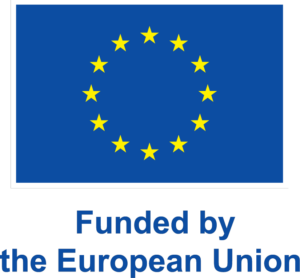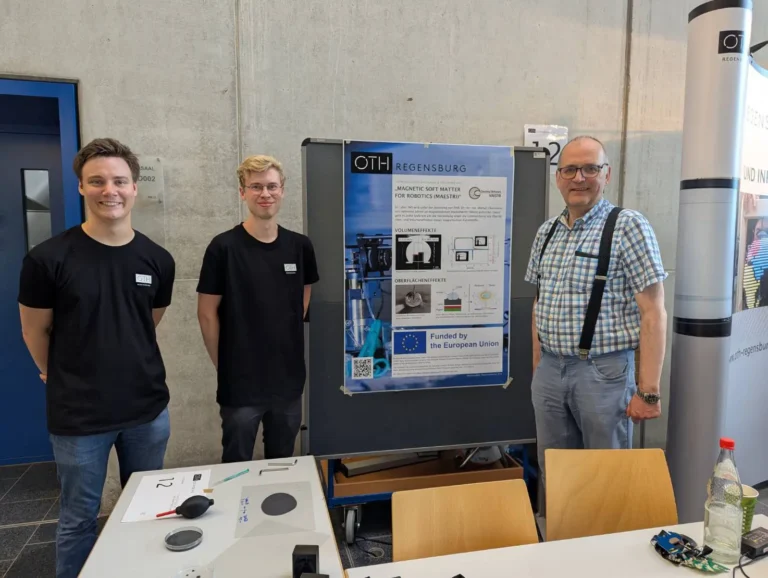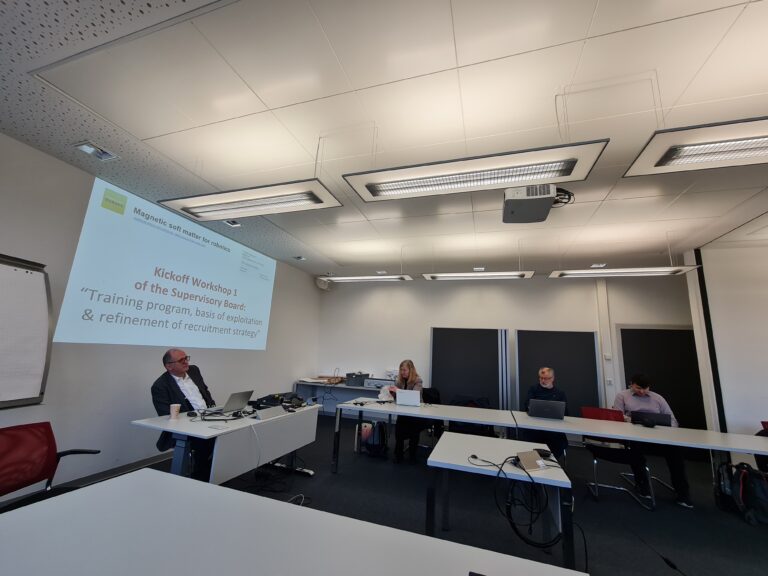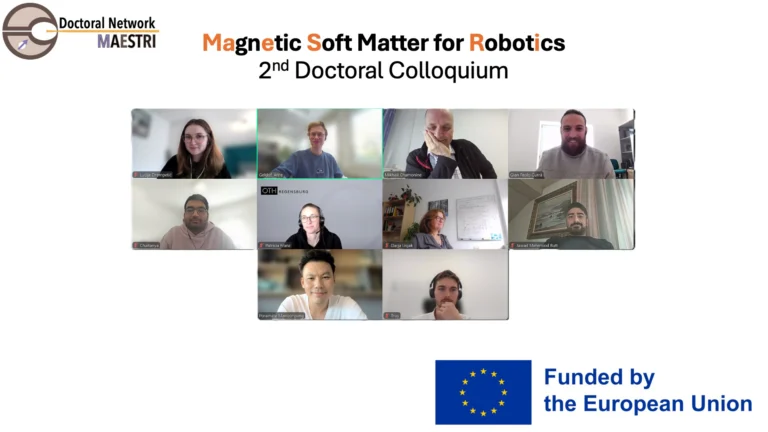

MAESTRI – Magnetic soft matter for robotics
Project: MAESTRI
Title: Magnetic soft matter for robotics
Period: 1. 3. 2024 – 29. 2. 2028
Leading organization: Ostbayerische Technische Hochschule Regensburg, Germany
Participating organisations: Jožef Stefan Institute, Christian-Albrechts-Universität zu Kiel, University of Ljubljana, University of Vienna, University of Southern Denmark, Scuola Superiore Sant’Anna, Prensilia SRL, Wegard GmbH
Principal investigator UL FMF: Irena Drevenšek Olenik
Research activity: Intelligent robotics, cybernetics
Project description:
This doctoral network (DN) responds to the existing demand for training of a new generation of experts in the emerging sub-field of soft robotics relying on the control of material properties by a magnetic field – magnetic soft robotics. Materials involved are elastomers and complementary liquids, filled with micro- and nanometer-sized magnetic particles. Because the technical problems and tasks involved are complex and require knowledge from different fields of science and technology, the consortium is composed of 7 academic and 2 industrial beneficiaries originating from biology, materials science, physics and robotic engineering. Further 3 associated partners are involved in research and transferable-skills training. The research program will be directed towards demonstration of a number of mobile robots and robot gripping devices with the necessary electronic and control systems, where the essential functional parameters (e.g., the friction coefficient of the robot shoe or the stiffness of the finger joint, etc.) are controlled by permanent or electro-magnets. On the way to the functional prototypes, the synthesis-structure-properties relationships of magnetic soft matter are to be investigated both experimentally and theoretically, because, hitherto, the required dependencies are not available and the underlying physical phenomena are not completely understood. The mechanical part of the soft mobile robots with integrated magnetic soft matter, the necessary electrical and magnetic control circuits, and the adaptive control algorithms for real-time magnetic field tuning and robot behavior generation are to be developed. The carefully designed training program will provide the necessary minimum of interdisciplinary specialist knowledge to all doctoral candidates and prepare them for meeting the challenges in their subsequent careers be that in academia, industry or as entrepreneurs, e.g., by obligatory exposure to industrial environment during secondments.
»This project has received funding from the Horizon Europe research and innovation programme under the Marie Skłodowska-Curie grant agreement No. 101119614.«
External Link: Press release on www.fmf.uni-lj.si [English language] [Slovenian language]



